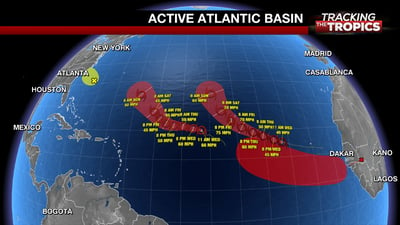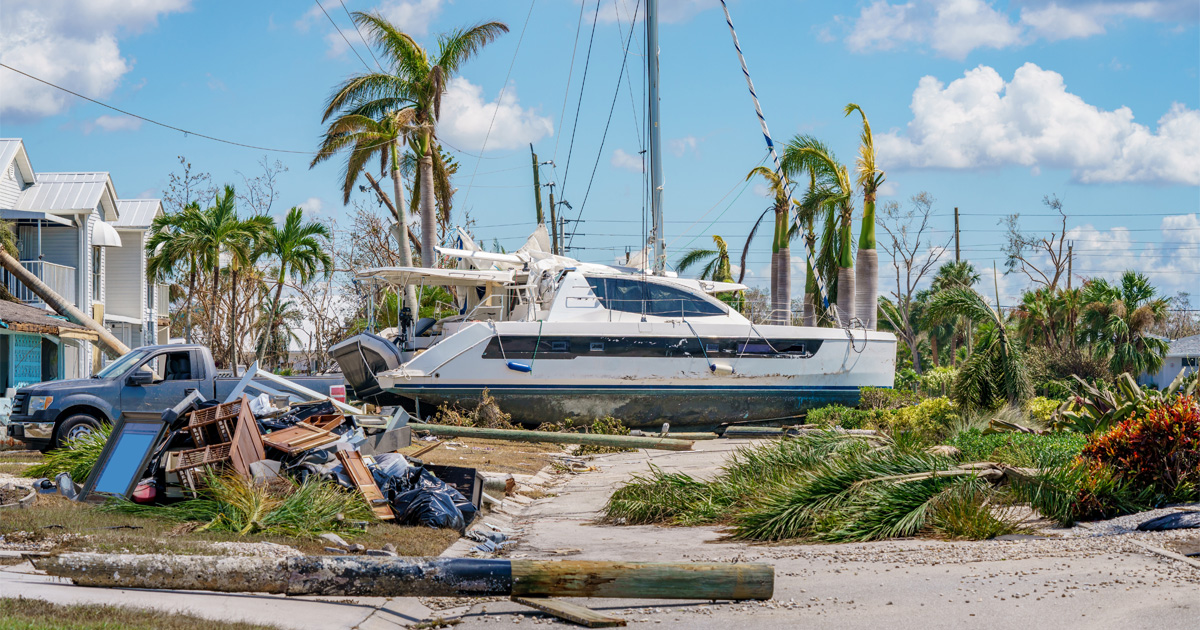Weathering the Storm: A Guide for Businesses During Hurricane Season
The impact of Hurricane Idalia serves as a wake-up call, reminding businesses of the need for robust preparedness strategies. Continue reading to learn what businesses that operate in hurricane-prone areas can do to bolster their disaster plans.
 The Atlantic Basin hurricane season typically reaches its pinnacle on September 10, and after a subdued start to 2023, atmospheric activity is increasing. Over the past two decades, August 29th witnessed both Hurricane Katrina in 2005 and Hurricane Ida in 2021. As the final throes of summer approach, businesses should be on high alert for wildfires and growing tropical weather disturbances.
The Atlantic Basin hurricane season typically reaches its pinnacle on September 10, and after a subdued start to 2023, atmospheric activity is increasing. Over the past two decades, August 29th witnessed both Hurricane Katrina in 2005 and Hurricane Ida in 2021. As the final throes of summer approach, businesses should be on high alert for wildfires and growing tropical weather disturbances.
Drawing on the witty one-liners made famous by the baseball legend Yogi Berra, this article presents ten key tips for businesses to prepare for hurricane season.
- Draft a Business Emergency and Preparedness Plan: "You can observe a lot just by watching," as Berra famously said. Immediate action is required when it comes to planning your emergency response. Your plan should clearly outline roles, procedures, and responsibilities for crisis scenarios, along with post-storm recovery processes. Furthermore, make sure to communicate this plan effectively to all employees.
- Establish Communication Channels: Effective communication is key during disasters. It’s vital to make sure awareness of disaster policies and emergency contact information for employees, customers, and vendors remains up-to-date.
- Have a Disaster Recovery Team: Learning from our mistakes is often how we progress. Designate a team responsible for executing the emergency plan and leading recovery efforts.
- Review Insurance Coverage and Policies: It's crucial to understand your business insurance inside out. Keep your property frequently assessed and be familiar with the deductible-associated contract language.
- Plan for Alternative Workplace: According to Berra, “You’ve got to be very careful if you don’t know where you are going, because you might not get there.” Plan for situations where employees need to work remotely or business operations must move to a backup location.
- Understand Contract Language:Remember, it's beneficial to understand legal jargon. The "force majeure" clause, frequently seen in contracts surrounding natural disasters, can significantly impact how businesses respond to and recover from such events.
- Document Business Assets: Proving the prior condition of your assets is a critical part of any insurance claim. Never underestimate the power of photographic and video evidence, especially when an insurance payout is at stake.
- Secure Your Data: Establish a plan to back up critical business information, financial records, and customer data — this is vital to ensure no data loss occurs during a disaster.
- Stay Up-to-Date With Weather Forecasts: Berra said, “It ain’t over till it’s over.” Always ensure that you receive the latest, real-time weather information and updates. Adequate warning allows businesses to prepare and react accordingly.
- Be Aware of Available Recovery Resources: Long after a disaster passes, recovery efforts continue. Plentiful federal, state, and local resources are available to businesses during these challenging times.
By being proactive in these steps enables businesses to better navigate the effects of the hurricane season, and ensures that they stay robust and resilient, regardless of what the season may bring.
%20LOGO%20FINAL.png?width=1089&height=252&name=MLG%20(PREMIUM)%20LOGO%20FINAL.png)
